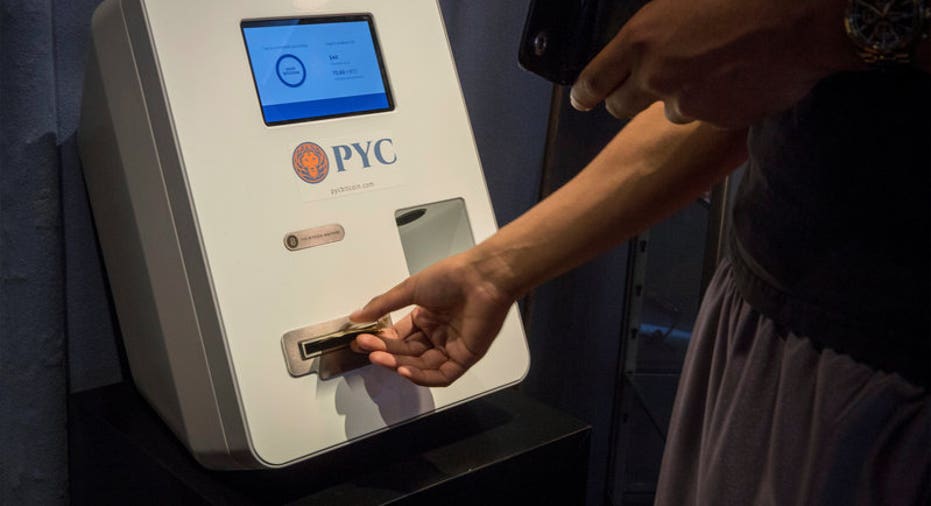New York's bitcoin hub dreams fade with licensing backlog

NEW YORK – New York's financial regulator had sights set on becoming a global hub for innovations like bitcoin when it adopted trailblazing virtual currency rules last year. But the state lost that momentum when the agency's chief left, putting a licensing process in limbo and allowing rivals to catch up.
Since June 2015, New York has required virtual currency firms doing business there to get a "BitLicense" to hold customer funds and exchange virtual coins for dollars and other regular currencies.
Benjamin Lawsky headed the Department of Financial Services (DFS) when it developed those rules, acting as an early advocate of virtual currencies when other regulators were still skeptical.
Although it remains unclear whether such currencies will ever gain mainstream acceptance, they are now part of a broader, rapidly-growing industry that blends finance and technology, and which leading financial centers are keen to attract.
For companies, a stamp of approval from a tough regulator offered a chance to win over customers who remained dubious about the product. For New York, it was an opportunity to get ahead of rivals around the world that were also trying to woo "fintech" business.
Yet just after the regulations came into force, Lawsky left the agency. Some senior staffers with BitLicense expertise soon followed him out the door.
Since then, DFS has issued just two BitLicenses. Another 15 applications are still pending, with four others withdrawn and four denied, a spokesman said. Two more virtual currency companies have received trust charters, which treat them more like traditional banks.
"By putting the regulations together and having key staff members leaving almost thereafter, they really put the industry behind the eight-ball in terms of competing with traditional service providers," said Patrick Murck, a lawyer and fellow at Harvard University's Berkman Klein Center for Internet & Society.
Most companies that were operating in New York when the regulations took effect can still do business there while waiting for a license. However, start-ups may face trouble raising money or expanding their business, Murck said.
The virtual-currency industry is miniscule compared to traditional finance, but it has grown rapidly since bitcoin's launch in 2009. There are now other virtual currencies, and broader uses for underlying technologies that create and distribute them. (Graphic: http://reut.rs/1XVt1gH)
The bitcoin market is now worth about $10.7 billion, compared to less than $1 billion just three years ago, according to the information site CoinDesk.
LIGHT VS TOUGH
As the market has grown, financial centers around the world have competed aggressively to attract new business. While some have relied on light-touch regulation, the appeal of New York's BitLicense was that it offered a clear legal framework.
However, the slow licensing process and strict requirements are driving some companies away.
An application costs $5,000 to file, and once completed, can run 500 pages - including everything from compliance manuals to executives' fingerprints, lawyers said.��Regulators then drill deeper, asking for details of business models, organizational charts or ownership information.
BitLicense forces companies to "extract personal, private information" from users, creating a target for hackers, Erik Voorhees, chief executive of Switzerland-based virtual currency firm ShapeShift.io, said in an interview, explaining the company's decision not to do business in New York.
GoCoin CEO Steve Beauregard told Reuters securing a New York license was not worth the effort: "It's too overreaching and burdensome, especially for the smaller companies," he said.
Marco Santori, who heads the digital currency practice of law firm Pillsbury Winthrop Shaw Pittman LLP, said at least 15 firms were shunning New York. He has advised clients to focus on states like California, where, he believes, regulators are unlikely to take aim at digital currency companies any time soon. State lawmakers there recently withdrew a second proposal to regulate digital currency companies.
Other states are developing rules and awarding licenses at a faster clip.
Washington State, for example, has issued seven licenses to virtual currency companies since 2013 under its longstanding law for money transfer businesses. North Carolina has licensed two. A uniform virtual currency law that any state can opt into is also in the works, and there has been talk of a possible federal charter.
Internationally, some countries, like Japan, have moved to regulate aspects of digital currency trading, while others, like Bolivia, have banned it. Still others have sought to adapt tax policies and existing laws on money laundering and other illicit activity to the new market. The BitLicense, however, remains a unique approach.
In September, Deloitte ranked New York City No. 3 as a financial-technology destination more broadly, behind London and Singapore.
People familiar with the BitLicense process say the delay in appointing Lawsky's successor sapped some of the momentum.
The new superintendent, Maria Vullo, who took over in June 2016, told Reuters in an interview DFS is striving to clear the application backlog. The reviews had to be thorough, though, because of the risks involved, she said.
New York introduced its BitLicense after the collapse of Mt. Gox, a Tokyo-based exchange that lost an estimated $560 million worth of customers' bitcoins.
"It's not a video game," she said. "It involves real money and taking deposits."
Jerry Brito, executive director of Coin Center, a digital currency research and advocacy group in Washington, said the BitLicense's roll-out did not live up to its promise. Still, New York's leverage as a world financial center would make it hard for companies that want to grow to shun this market, he said.
"I think it's going to be rare that companies say, 'We're not going to do business in New York.'"
(Reporting by Suzanne Barlyn; Editing by Lauren Tara LaCapra and Tomasz Janowski)



















